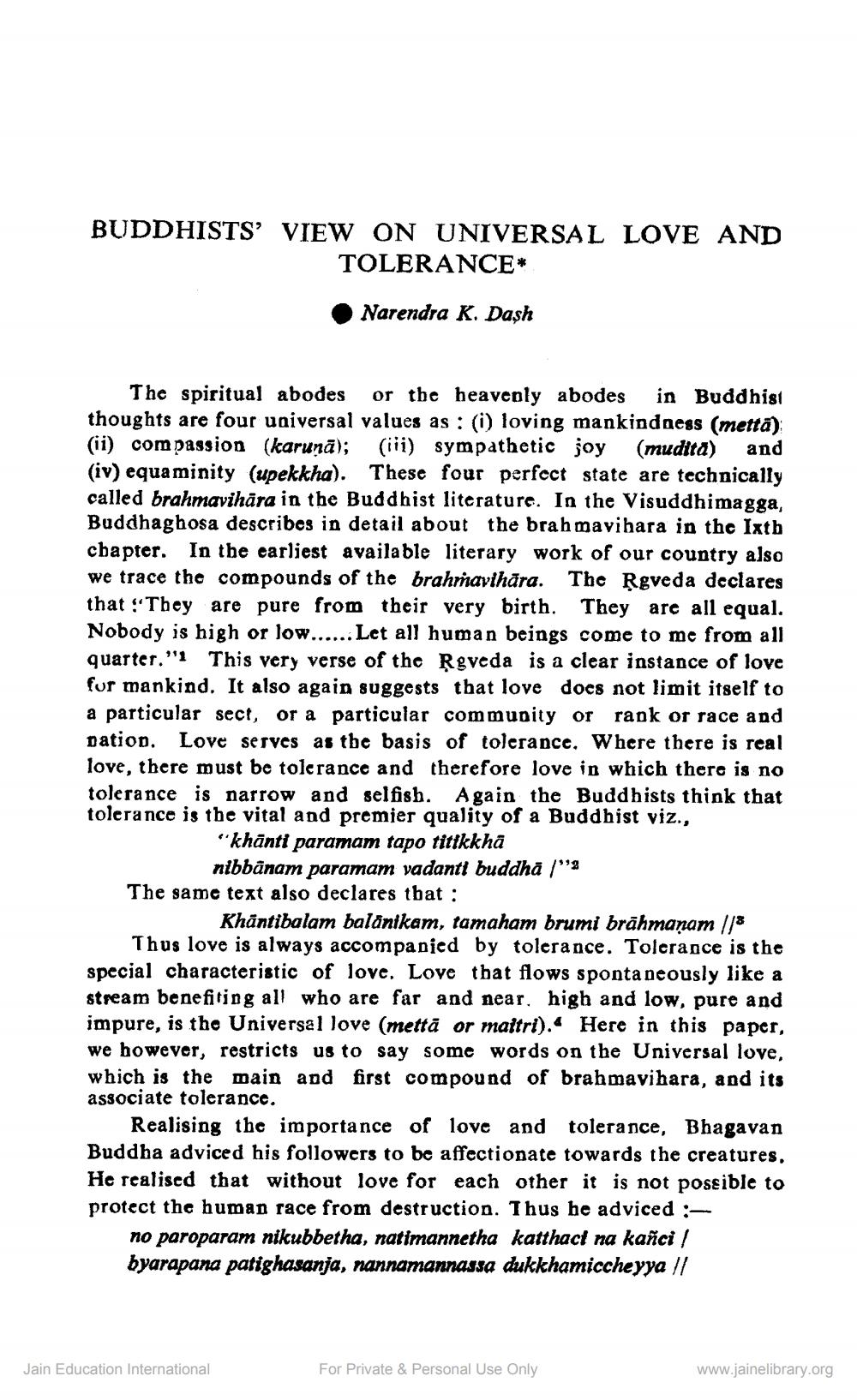________________
BUDDHISTS' VIEW ON UNIVERSAL LOVE AND
TOLERANCE*
Narendra K. Dash
The spiritual abodes or the heavenly abodes in Buddhist thoughts are four universal values as : (i) loving mankindaess (metta) (ii) com passion (karunā); (iii) sympathetic joy (mudita) and (iv) equaminity (upekkha). These four perfect state are technically called brahmavihāra in the Buddhist literature. In the Visuddhimagga, Buddhaghosa describes in detail about the brahmavihara in the Ixtb cbapter. In the earliest available literary work of our country also we trace the compounds of the brahmavihāra. The Rgveda declares that They are pure from their very birth. They are all equal. Nobody is high or low...... Let all human beings come to me from all quarter."1 This very verse of the Rgveda is a clear instance of love for mankind. It also again suggests that love does not limit itself to a particular sect, or a particular community or rank or race and pation. Love serves as the basis of tolerance. Where there is real love, there must be tolerance and therefore love in which there is no tolerance is narrow and selfish. Again the Buddhists think that tolerance is the vital and premier quality of a Buddhist viz.,
"khānti paramam tapo titikkha
nibbānam paramam vadanti buddha /'2 The same text also declares that:
Khăntibalam balänikam, tamaham brumi brāhmanam // Thus love is always accompanied by tolerance. Tolerance is the special characteristic of love. Love that flows spontaneously like a stream benefiting all who are far and near. high and low, pure and impure, is the Universal love (mettă or maitri). Here in this paper, we however, restricts us to say some words on the Universal love, which is the main and first compound of brahmavihara, and its associate tolerance.
Realising the importance of love and tolerance, Bhagavan Buddha adviced his followers to be affectionate towards the creatures. He realised that without love for each other it is not possible to protect the human race from destruction. Thus he adviced :
no paroparam nikubbetha, natimannetha katthaci na kañci / byarapana patighasanja, nannamannassa dukkhamiccheyya //
Jain Education International
For Private & Personal Use Only
www.jainelibrary.org




